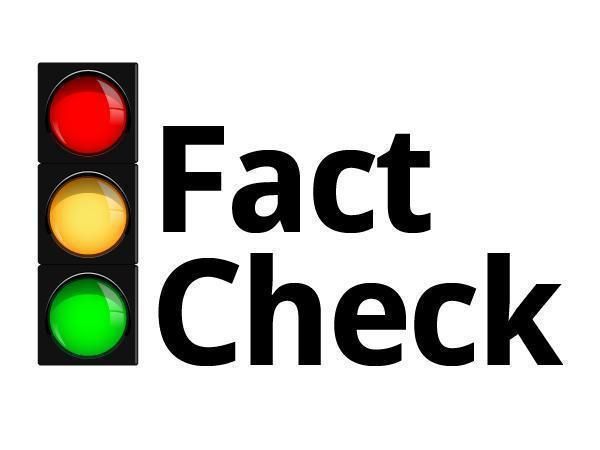Chasing the larger truths

It wasn't meant as a laugh line.
Anson Kaye, a media strategist who works with Democratic campaigns at GMMB, was decrying the "tyranny of the fact-checker," those pesky reporters whose stock-in-trade is deconstructing 30-second campaign spots. Focusing on details about what a particular vote meant or how to read a particular piece of economic data obscured "larger truths" about the targets of the ads, he said.
"You become so concerned about how a particular fact check is going to interpret a piece of data that may well be ambiguous that we dial back larger truths that people should be hearing," Kaye said.
Kaye said this in front of a room full of fact-checkers and those who study and support this type of journalism. And yes, we laughed a bit.
For those of us who build stories out of carefully gathered quotes, documents and research, the suggestion that a bad fact – what the less generous in the room would call a lie – doesn't undermine your larger point is something of a foreign concept. We had just been through an election where there were plenty of bad facts tossed about – to the tune of $100 million-plus in North Carolina alone.
Kaye and Jim Duffy, a partner at Putnam Partners, were very kind to appear on a panel during a day-long fact-checking conversation hosted by The American Press Institute last week. The day involved a series of discussion assessing the 2014 election and looking forward to new tools and practices that could be put into play for 2016 and beyond.
Fact-checking has evolved in recent years both as a reaction to the explosion of television advertising fueled by big money in politics and partly as a way to plug a loophole created in political reporting that gives equal time and credence to both sides of an argument, even if one side is putting forward claims not supported by facts, science or documentation.
At WRAL News, our own modest efforts in this vein can be found in our Fact Check gallery. The granddaddies of the profession, at least the current iteration, are the Pulitzer Prize-winning PolitiFact.com, the Annenberg Public Policy Center's FactCheck.org and the Washington Post's Fact Checker column, although there are people doing similar work around the country and around the world.
Bill Adair, PolitiFact's founder who now heads the Duke University Reporters' Lab has put together a handy map detailing the various fact check efforts.
Kaye's assertion sounded a bit like comedian Stephen Colbert's "truthiness" idea – if it feels right, go with it, evidence be damned. It also reminded me of a couple of WRAL News fact checks this year, one of which dinged Democratic-leaning groups for saying that state House Speaker Thom Tillis' General Assembly cut education by $500 million.
The problem with the claim was the number was wrong, betraying a misunderstanding – either on purpose or out of naivete – of how the state budget process works. Were there ways to build an argument that the Republican legislature had not kept up with education spending? Yes, but they would have involved some nuance and maybe some slightly smaller numbers. In the end, the $500 million claim was wrong, and even some Democrats such as consultant Thomas Mills reckon voters may have soured on seeing candidates repeatedly use a figure that was just wrong over and over again.
Duffy said this isn't much of a stretch for many voters.
"Most campaigns are only about one thing, and that is do I believe the son of a b---- or not," Duffy said.
When fact-checkers bring their ire to bear on a particular ad or political figure, that's bad news. Ad makers, he said, don't want to be flagged as pants-on-fire, red light or four Pinocchios wrong.
"To be incorrect simply feeds into their preconceived notions that these people will lie to us all the time," Duffy said.
Both Duffy and Kaye work for candidates, not for the independent expenditure groups that air political advertising cheek by jowl with those running for office. Had one of those ad producers been in the room, we may have gotten another answer about whether the simple facts, larger truths or just winning was most important.
Of course, television ads aren't the only modalities used by politicians that attract fact checks. Along with floor speeches and mailers, the Internet gives those in the public eye new methods by which to tweet, meme, email and otherwise disseminate bad facts.
Harriett Levin Balkind, a long-time communication executive and the founder of HonestAds.org, frames the issue by drawing a parallel between selling soap and selling a candidate's message.
"How is it possible that politicians can be so like products but the same rules don't seem to apply?" Balkind asked.
Sellers of breakfast cereal and batteries can't make misleading claims, so why do political figures get away with it?
"We don't accept it from anybody else in our lives – not our families, not our mates, not our business associates," she said. "Why do we accept lying from politicians?"
The fact check is a way of saying we do not.









